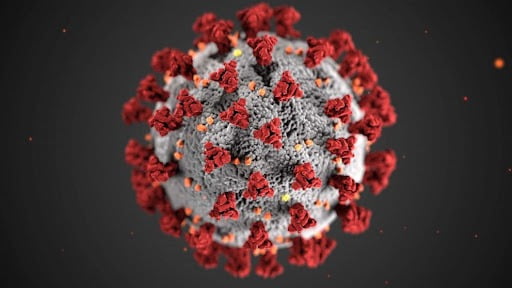As officials confirmed more than 26,900 new cases on Monday, Hong Kong health specialists warned that they do not anticipate Covid-19 infections to fall any time soon, anticipating that the daily caseload would take at least another month to drop.
Residents using at-home quick antigen tests registered a total of 14,868 cases through a new online government portal, with another 12,040 verified using polymer chain reaction screenings, bringing the day total to 26,908.
The aggregate Covid-19 figure for Hong Kong was 733,785, with 721,154 instances documented during the fifth wave, accounting for 98 percent of the total.
In the meantime, the Hospital Authority recorded a total of 249 coronavirus-related deaths in the last 24 hours, with patients ranging in age from 39 to 105. There were 165 people who had no immunisation records, 41 people who had got one dose, 39 people who had received two doses, and four people who had received three doses.
Another 37 people, ranging in age from 64 to 106, died earlier but were just notified owing to a backlog on Monday. The total number of people who died as a result of Covid was 4,279.
The Centre for Health Protection’s Dr Chuang Shuk-kwan recommended the people to remain watchful and avoid going out as much as possible.
“The number of cases is still high. If we are not attentive, and the flow of people is high and everyone relaxes, the caseload might rebound,” she warned.
Residents should not expect a reduction in the number of infections in the near future, according to health experts.
Professor Lau Yu-lung, who chairs the government’s Scientific Committee on Vaccine-Preventable Diseases, believes that local infections, which are fuelled by the more contagious Omicron form, have reached a plateau, and will remain stable for three to six weeks before declining.
“It’ll take a long time for the number of cases to decrease. For a while, people would be confused and worried,” he said on a radio broadcast, referencing Singapore’s experience, where daily infections lingered around 10,000 for a month before falling.
Within six months of the commencement of the fifth wave in late December, Kwok Kin-on, an assistant professor at Chinese University’s School of Public Health, predicted that around 5 million of the city’s 7.4 million population would be infected, with 7,000 deaths.
Current social-distancing regulations would be maintained, and only 30% to 40% of residents would report their infections to authorities, according to the scenario.
He noted that the daily number of illnesses would not drop into the four digits until late May, and that it would only return to 100 around a month later.
Even if 5 million people were afflicted, he told the Post, the city would not achieve herd immunity since vaccinations were not 100 percent effective, antibodies would deteriorate with time, and new variations could emerge.
“We may witness anti-epidemic fatigue in the population,” he said on the same programme, adding that he was “optimistic” those cases would not surge again in the next weeks.
According to Kwok, strong social-distancing measures may only be gradually eased if infection rates returned to the four-digit range. He said that easing the present limit on restaurants seating more than two people per table would be a good place to start.
Lau further stated that his committee now believes that patients with good immune systems who had received at least two doses of the Covid-19 vaccine before becoming ill had “hybrid immunity” and would not require any additional shots once they recovered.
“Having an illness once is the same as receiving one dose of vaccine,” he said, citing research from other countries. “Hybrid immunity is even more efficient than [alone] immunisation.” It’s better all-around and lasts longer.”
He cautioned locals, however, not to put themselves at danger of infection in order to gain hybrid immunity, as Covid-19 was still a life-threatening sickness.
In response to Kwok’s study, Chuang said she couldn’t estimate the amount of people who don’t disclose positive cases through fast tests, but she urged the public to do so so that authorities could better grasp the situation.
Meanwhile, acting home affairs minister Jack Chan Jick-chi announced the establishment of a fourth call centre to handle Covid-related medical inquiries, bringing the total number of phone lines dedicated to the initiative from 280 to 550. Every day, more than 10,000 people phone the hotlines.
In the next days, a mobile app for patients will be released, allowing locals to make enquiries with the centres, he added.
Separately, Hongkong Post stated on Monday that 14 of its branches around the city would be closed for disinfection on Monday after some employees tested positive for Covid-19. Sheung Wan, Happy Valley, and Stanley post offices are among those affected.
The private Union Hospital said its number of beds for non-Covid patients moved by the Hospital Authority, such as those requiring services in paediatrics and non-urgent procedures, will be expanded to 80 from 50 in an effort to relieve the load on public hospitals.















